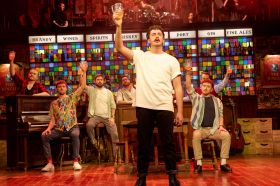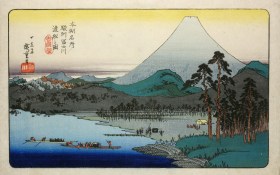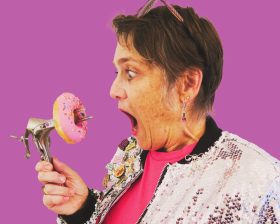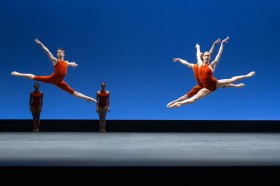Chronic uncertainty pervades the arts sector and has a significant impact on the personal well-being of artists, according to Adelaide-based therapist Alison Robb.
While the impact of the 2015 Brandis raid on the Australia Council and the consequent disruption of funding cycles and organisational funding is well known, structural issues inherent in the arts sector’s day-to-day operations result in further complications.
‘So the sort of things that you guys [in the arts] are dealing with is chronic uncertainty in terms of employment, in terms of money, in terms of your social landscape. On the one hand there’s this incredible community and family of artists and a sense of belonging, but on the other hand there’s all this project-based work where for a little while you’ve got a family and then suddenly you don’t,’ Robb said in a keynote address at the 2016 Victorian Theatre Forum.
A former theatre director who is currently re-training as a clinical psychologist, Robb said she made the decision to change careers because so many people she met in the performing arts were vulnerable.
‘I felt like a lot of the people I was working with, including myself, were vulnerable to a lot of difficult stuff and maybe sometimes their needs weren’t being met – and maybe I could do something about that by becoming a therapist who works with artists to help them meet those needs,’ she said.
The impact of chronic uncertainty can be profoundly damaging. A recent study found that entertainment workers attempt suicide at more than double the rate of the average Australian. The study also found levels of moderate to severe anxiety in arts and entertainment professionals to be ten times higher, and depression five times higher than among the general population.
Read: Bringing mental health out from the shadows
Robb described working in the arts as ‘a pressure cooker of uncertainty,’ and said that living with such stress and uncertainty for prolonged periods could lead to acute stress, depression and substance abuse.
Developing personal resilience in the face of such pressures is a priority to living a healthy life in the arts, she continued.
‘Resilience is the process of adapting well in the face of uncertainty – and the thing to note about that is it’s a process, not a destination. You do resilience rather than arrive at it … and in my opinion the point of resilience is that you can continue living a life that you value in the face of difficulty.’
Steps to cultivating resilience
Resilience can be learned and developed in anyone, said Robb, who stressed the importance of learning acceptance strategies around negative thoughts and feelings, as well as the value of connectedness.
‘Positive relationships are really protective. The ability to truly be seen and embraced by those who have earned that privilege is a real gift. Figure out who they are – they might be from your artistic community, they might not. Cultivating connection with like-minded people is really important.’
Practical self-care was also important, Robb continued. ‘It’s the boring stuff – what food, use of substances, sleep, physical health. I wish I had learned earlier to get a really good GP who understands what it’s like to be you, in your industry, and knows the holistic view of what it means to be well.’
Another strategy she recommended cultivating was to have a more playful outlook on life.
‘Joy and delight are essential for resilience. Questions to ask yourself include “what did I love doing when I was little – really, truly, truly love?” … Can you give yourself that now? Allowing more joy and delight into your world, having that experience of positive emotions is essential for building resilience,’ Robb explained.
‘There’s a theory, called “Broaden and Build” theory, which shows that positive emotions have the effect of helping you solve problems more effectively; you can actually see more possible solutions if you give yourself that play and delight.’
A final strategy to develop was ‘meaning-making – finding meaning in difficult experiences is very, very helpful. It could be through a spiritual path, it could be through the crafting of ritual to mark an occasion, but you’re all artistic people – you know how to make art to make sense of your experience. It’s something that you’re made for – but give yourself permission to make really bad, terrible, crappy art. It’s not about the product,’ she laughed.
Alison Robb’s keynote ‘Here I Stand: Cultivating Personal Resilience In The Face Of Chaos’ was presented at the 2016 Victorian Theatre Forum on Wednesday 13 July.





